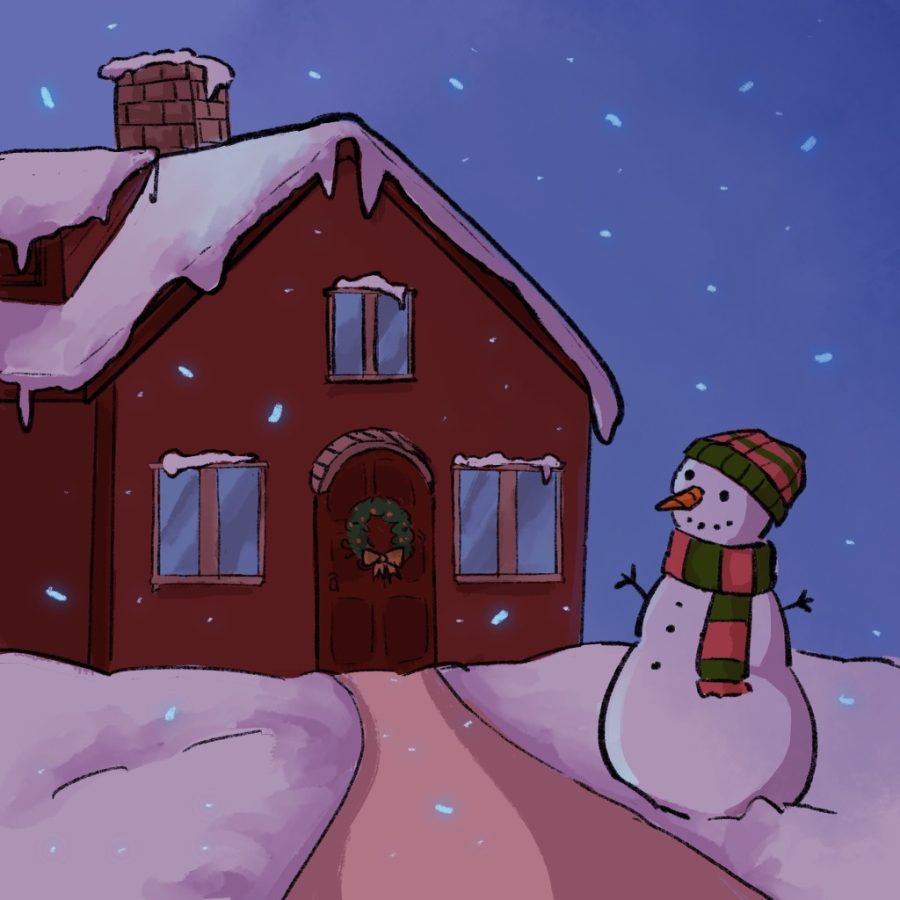The Magic of Snow Days
December 15, 2022
Do you remember your first snow day? The experience of waking up to a snowy winter wonderland and hearing the news that school has been canceled is an unbeatable feeling for many. The memories created on these days are often extraordinary and a key experience for many children. On the other hand, the snow and ice covering the roads can often lead to road closures and increased chances for accidents. Additionally, many businesses cannot afford to lose revenue due to these extreme weather events.
School closures due to snow have been an extremely hot topic within recent years, as school districts have already developed programs and strategies for online school due to the COVID-19 pandemic. While some argue that this technology should be used on days when snow prevents school, others argue that snow days are a crucial part of childhood. Senior Ryan Shipley explains that he “enjoys having time to recharge and sleep-in” and that he “still appreciates the fun in snow days, even as a senior in high school.” Another difficulty surrounding the use of online programs for a virtual snow day is the availability of technological resources. The Washington Post explains, “On a practical level, there is concern for the kids who could be left even further behind after a pandemic year without computers, tablets or reliable Internet service at home. Many children’s schools provided their students with devices during distance learning. Will they still have those come winter? What about the WiFi hotspots?” This arises from valid concerns of the lack of equal opportunities for a wide range of students. Similarly, many argue that leaving schools open on snowy and icy winter days will actually lead to more confusion and students falling behind. This can be attributed to the fact that many students who do not ride the bus have limited access to transportation on snowy days. Children who walk to school have a more challenging path to school, and many parents do not feel comfortable driving to school, therefore leading to the absence of the students. A study from Harvard states, “Snow days are less detrimental to student performance than other absences— which can be explained by the fact that school districts typically plan for weather-related disruptions and tack on extra days in the schedule to compensate. They do not, however, typically schedule make-up days for other student absences.” Furthermore, the article explains that “the time lost to closure can be regained. Student absences, however, force teachers to expend time getting students on the same page as their classmates.”
Students from Issaquah High School generally believe that the district does a good job of accommodating or canceling school due to snow, if necessary. Junior Ella Goodman states, “The district usually does a good job of canceling or delaying school when students cannot get there. I generally agree with and understand the weather-related decisions.” ISD displays information on the delay or closure around 6am the morning of, if not earlier. The criteria for canceling school is not fully formulaic, rather it is based on patterns and visual observations from district admin. Additionally, Freshman Olivia Newell says, “I think that school should be canceled if there is four or more inches of snow, and/or if there is ice.” Sophomore Amogh Desai adds, “If the snow is bad enough that the roads are slippery or buses need to use snow routes, school should be canceled or delayed.”
While some believe that snow days become “boring” as students get older, many IHS students beg to differ. Desai explains that his favorite snow day memories include “drinking hot chocolate, staying at home, and sledding.” Goodman says, “I enjoy sleeping in, seeing friends, and not having the stress of school.” Shipley further elaborates, “I have not noticed my perspective on snow days changing, I still really enjoy them as a senior.” Many activities are widely available and fun during snow days, even at a high school age.
Although snow days are enjoyable and relaxing, many fret the extension of school throughout June. Newell states, “I am not really hoping for any snow days this year because I do not want to make up those days at the end of the year.” This connects back to the systems used to avoid missing a full day of school, including the two-hour delay, online school for a day, and weather make-up days (assigning a day-off unless there is a weather related emergency which cancels school). These can lead certain students to steer away from hoping for snow days.
In summary, snow days can include exciting anticipation, fun activities, and carefree attitudes, but can also lead to limited education for students, difficulties in transportation, and extended school in summer. The controversy over these winter days mainly centers around the equitable aspect of digital days or not canceling school (while often forcing students to find transportation). The magic of snow days has been slightly diminished as students become older and more practical, but overall, snow days are still a fun and relaxing experience for many.






